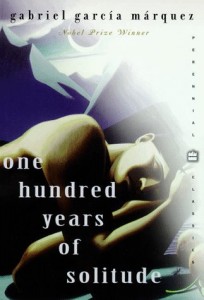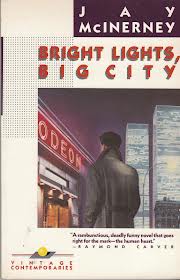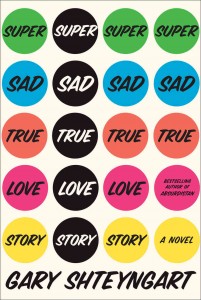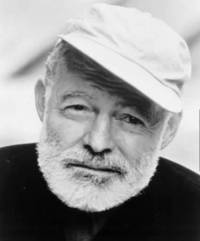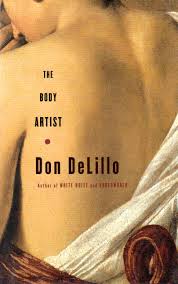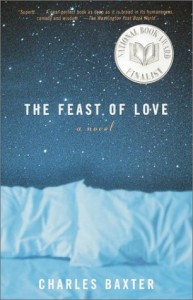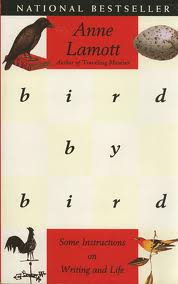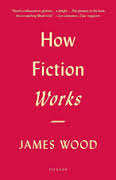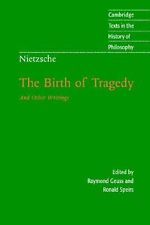 “Nothing can be meaningfully affirmed.” – Friedrich Nietzsche
“Nothing can be meaningfully affirmed.” – Friedrich Nietzsche
Geuss, Raymond, &Speirs, Ronald (Eds.) (1999). Friedrich Nietzsche: The Birth of Tragedy and Other Writings. Cambridge, U.K.: Cambridge University Press.
The main Nietzschean text presented in this book is The Birth of Tragedy Out of the Spirit of Music, published in 1872. The “other writings” are an updated forward Nietzsche wrote for Birth of Tragedy a dozen years after its initial publication, and two short essays, “The Dionysiac World View,” and “On Truth and Lying in a Non-Moral Sense.” I’ll confine my review to The Birth of Tragedy. (Blame the length of the review on Nietzsche’s dense prose, not me).
Birth of Tragedy is a sprawling essay of 100 pages, with extremely dense ideas ranging across many subjects, not always presented in order. Nietzsche was only 28 years old when he wrote it, so its organization, or lack of it, may give us some insight into the workings of his young mind. However, even at that young age, Nietzsche was a well-known scholar, an expert in philology, the intersection of linguistics and history. Suffice it to say that he read Sophocles and Plato in the original ancient Greek.
The difficulty, and pleasure, of reading the essay is its provocation at almost every turn. It is un-skimmable. Almost every paragraph, every sentence, must be parsed, processed, and evaluated. I will paraphrase, rather than quote Nietzsche’s main ideas, and I will also provide, [in brackets] my reactions to some of them, in order to show how an active reader can extract the latent value of Nietzsche’s sometimes cryptic prose. It goes without saying, I may have completely missed Nietzsche’s meaning on any topic!
Pessimism
Nietzsche writes that the ancient Greek tragedians were fundamentally pessimists because they were obsessed with a life guided by pursuit of knowledge, and that pursuit can only end in tragedy, as demonstrated by Sophocles’ great play, Oedipus Rex.
If you pursue knowledge, as Oedipus did, and as Socrates advocated, it will surely end in grief, because it’s a fool’s errand. Why? Because there is no knowledge worth having. All of life is illusion, and at the end of it, you die anyway. The certainty of your death means no knowledge can be meaningful, so death undercuts the possibility of optimism about life. So if the Greeks pursued knowledge, they were necessarily pessimists.
Nietzsche tells the apocryphal story of an ancient oracle’s teaching (p. 23).
Question: O wise one. What is best for man?
Answer: Not to have been born. To be nothing. Second best: die soon.
[I disagree for three reasons:
1. An individual transcends death through community participation, such as in arts, science, history, and all aspects of civilization. Those have a much longer lifespan than any individual, so to the extent that the individual partakes of them, the individual’s knowledge is immortal and optimism is possible. Nietzsche makes the fundamental error of presupposing that individuals are absolute monads.
2. An individual transcends individuality through intersubjectivity, a type of deep empathy. One partakes of other individuals (the community), and in doing so, becomes relatively immortal.
3. Self-knowledge reveals the telos, which is a self-justifying pleasure despite death. ]
There are two kinds of pessimism, Nietzsche writes:
1. The pessimism of weakness: What’s the use: we’re all gonna die.
2. The pessimism of strength: Enjoy pleasure while you can, before you die.
[His epicurean strong pessimism is similar to my objection #3 above, though probably for different reasons. I also note that Nietzsche’s father died when he was only 5. Perhaps that affected his view of life more than he acknowledges.]
Individualism
Nietzsche says that individuality is a delusion so strong, you cannot hope to shake it off. He says the illusion of individuality is pervasive and unshakeable, so you must either accept that illusion, and live a lie, or die. No other choices.
[I agree about the delusion, but probably for different reasons. I say individuality is a delusion borne of socially constructed ego, guaranteed by biological, spatiotemporal uniqueness, as described in my ebook, The Purpose of the Body.
I suspect the delusion of individuality has a different meaning for Nietzsche. He seems to believe that “life” is constituted of dialectally interacting cosmic forces of chaos and order. (He was very much influenced by the pre-Socratic, Heraclitus). Each person is a manifestation of those eternal forces, but we come to believe in our own individualism instead of appreciating our true nature as non-individual, swirling forces of chaos.
I don’t subscribe to any sort of supernaturalism. I’m totally committed to humanism and naturalism. If there are great cosmic forces behind the appearance of individuality, Nietzsche would have to make the case for that, which he attempts to do in this book. But I read those forces of being, as Freud did, as manifestations of individuality, not as superhuman forces.]
Evil
Why is there evil? This is the problem of theodicy: how can life be good when there is such evil in the world? Nietzsche gives three answers:
a. Evil is necessary for free will to be expressed by resisting evil, and free will is good. Therefore evil is necessary for there to be good;
b. Evil is necessary for good to flourish in the long run;
c. There is evil because the gods are evil (the Olympian gods of the ancient Greeks), and they’re evil because they live as men do (only immortally), and that’s because the Greeks made them up (unconsciously, by projection). Therefore, the world has evil because the gods are evil, and the gods are evil because man is evil.
[Answers a and b are the same ones given by John Milton in Paradise Lost, and are highly arguable. Nietzsche absolutely nails the solution in his answer c, however, and this hoary problem is henceforth a non-problem.]
Christianity
Nietzsche argues that Christianity is hostile to life. Why? Because it looks to “the other world,” the so-called “hereafter.” For Christianity, life is “immoral” and we are all horrible sinners. The afterlife is the good stuff.
Furthermore, Nietzsche says, the impulse to live is a lust for life and sensuality, but Christianity abjures lust. Christianity desires above all, “rest” as on the Sabbath. It desires stasis, rest, eternity, and nothingness. In that, Christianity is nihilistic. Christian absolutism thus betrays a secret instinct for the annihilation of life.
[I have to agree with Nietzsche on this point. Christianity seems anti-life, and pro-death, pro-heaven. Note that Nietzsche was the son of a preacher, and studied Lutheran theology himself, so he writes from some knowledge.]
Nietzsche also accuses Christianity of being against art. The reasoning is that art is greater than morality because the world is only justified by aesthetic experience. Is a flower good or evil? The question makes no sense. The world is just the world, neither good nor bad. It is what it is. A flower can be beautiful, but not good or evil.
Art, which represents the world, is therefore prior to morality. But if morality is absolute, as Christians say (the word of God), art is without meaning.
[This is the exact reasoning Plato used, in The Republic, to argue that no poets would be allowed in the utopia, because poetry is nothing but lies. The world is what it is, so why do you need a poet to tell you it’s some other way?]
Finishing Nietzsche’s logic, art is the only meaning in life, because death undercuts all meaning except aesthetics. If art has meaning, Christianity is wrong about absolute morality.
Knowledge
Knowledge is useless, Nietzsche writes, and pursuit of it is futile. Why? Because you’re going to die anyway, all your knowledge is useless in the face of death.
[The strength of this argument requires that you assume that individuals are monads. I already argued that If a person lives in a community, knowledge can benefit those who survive you, such as in the discovery of insulin or penicillin. More abstractly, philosophical knowledge can do the same, such as articulation of human rights, or government by constitution. All the framers of the U.S. Constitution are long dead. Was their effort futile? Should they have danced instead? If you omit the fact that individuals are embedded in community, many errors follow.
Interestingly, Milton makes a similar argument in Paradise Lost: : Don’t waste your time in philosophical speculation because your time is limited. Spend it obeying God, to assure the safety of soul when you do die. That’s what matters. But while Milton’s argument was practical, Nietzsche’s is doctrinal.]
Nietzsche draws on the tradition of ancient Greek tragedy to make his case that pursuit of knowledge is not only futile, it is sinful. The sin is hubris, offending the gods by trying to acquire the knowledge that only the gods possess (e.g., the knowledge of good and evil). The ancient Greeks were obsessed by hubris (i.e., Oedipus Rex).
[Why is hubris a sin? I think it’s because the patriarchy of religion requires obedience above all. Obedience is conformance to the will of another instead of oneself. It is therefore willful abdication of personal intentionality, not merely behavioral conformance. It is specifically abandonment of free will, and abdication of personal agency, which the gods (the patriarchy) cannot tolerate. Why not? I think because:
1. The power-holder enjoys power, which implies self-transcendence and personal self-aggrandizement. Hubris is therefore small-minded egotism masquerading as moral principle.
2. Your reason is inadequate and will lead only to error. The gods’ knowledge is superior, so obey it for your own good. That sounds reasonable, until you realize it is a self-refuting argument. Who would propose this argument and know it to be true? No human possibly could, because it states that human reason is inherently flawed. Humans do not understand the mind of god, by definition. Therefore, this argument must be inadequate. Only god himself could deliver this argument. Unless we believe that church patriarchs, or kings, or any human, is actually god, then this argument cannot be made, in principle.
3. You are a child and need socialization, which entails obedience. This argument is valid, if one accepts that the gods are parental with respect to humans, and by analogy or osmosis, the religious patriarchy (!) also has a parental responsibility to safeguard anyone who seeks knowledge. If not, this argument is undercut just as #2 was. In fact then, it reduces, as #2 did, to a self-serving faux-moral principle put forth by power-holders.
4. Obey because the gods will punish the whole community for the transgression of one. Hence, we cannot allow you to be free. It is too risky. You must obey. Now this argument holds up, and is the only legitimate argument making hubris a sin/crime. It would have been especially true where the tribe was fragile and vulnerable. It justifies intolerance of diversity and creativity, and calls for fear-based conformity. In ancient times there was much to fear: great plagues, weather, foreign invasions and crop failures; all attributed to transgressions against the gods (as in Oedipus Rex).
The logic of #4 is erroneous, (post hoc, ergo propter hoc) but it has justified hubris being a sin since ancient times. However that logic has been known to be invalid since at least the 17th century. Yet it persists today to justify calls for blind obedience. ]
Science
Nietzsche has two main questions about science. What are its origins, and what is its purpose? For origins, Nietzsche’s answer is that science is a desperate attempt to cover up meaninglessness of life by pretending to know and understand everything that can be known.
[I can hardly agree, although I do grant that science very often descends into scientism, the doctrine that Nietzsche ascribes to science. Many scientists, especially the more prominent ones who speak to the public, insist that “the universe” is scientifically discoverable. That is nonsense of course, since science has no access to any aspect of the world that is non-material. Still, that is a fault in scientific process and communication, not an explanation of its origins. I say that science originated in a confluence of social and intellectual forces: The Enlightenment, The Reformation, the rise of Humanism, and spread of moveable type; all of which enhanced individualism and the modern mind, which submits to evidence-based reasoning. In many respects, Nietzsche is a premodern mind, in that he seems to have little zeal for presenting evidence for his arguments. ]
As to the purpose of science, Nietzsche says it is a struggle against pessimism and death, under the illusion that everything meaningful can be known.
[I don’t disagree with Nietzsche on this, but I state the purpose in broader terms: Science is a specialized communication method for finding and sustaining social consensus about what constitutes truth.]
Nietzsche accuses science (meaning, for him, empiricism and logical reasoning), of a tyranny that suppressed artistic tragedy. More on that later.
Death
The fact of, and the certainty of death, make life meaningless, according to Nietzsche. There are two pertinent questions. 1. Is that correct? And 2. If it is, what should we do about it?
Nietzsche is quite sure that life is tragic. He quotes Schopenhauer to the effect that life can give no true satisfaction, and therefore living is not worth the effort, because it all ends in death. Nietzsche says, “[Life] says to us: ‘Take a look! Take a close look! This is your life! This is the hour-hand on the clock of your existence!’” (p.113)
[I disagree, on the grounds that while each biological individual faces oblivion in death, individual life takes place in a community, which survives the individual, providing meaning and relative immortality through community participation. In this way, we do create meaning, even though we know we shall die. Nietzsche assumes absolute individualism, which I call monadism (after Liebniz), which in my view is an error.]
Now, given that life is tragic, what should be done about it, according to Nietzsche? He disagrees with Schopenhauer, who said that the only honest attitude is simple resignation. “Life is meaningless and then you die. Oh, well.”
Nietzsche says no, the correct attitude is laughter and dance, precisely because everything ends in death. He calls this neo-Epicurian attitude, the Dionysian, after the ancient Greek god, Dionysus (Roman: Bacchus). But Nietzsche is not advocating an unsophisticated chant of “Eat, drink, and be merry, for tomorrow you die.” Rather, he says the Dionysian is the core of art: the raw experience prior to individualism which is the source of creativity and will.
The fundamental lust for life and its exuberance is the source of all genuine art, and since the lust for life is indestructible, the production of art is eternal, and the individual can, and should participate in that eternity.
[I have to say, I like that answer, and it is compatible with my own emphasis on intersubjective life in community as the principle means of individual transcendence. Art is a social activity, in my view, whereas Nietzsche says only that it is “pre-individual,” but despite some quibbles like that, I find his idea provocative.]
The Dionysian
The Dionysian experience is that of rapture, or ecstasy; a self-transcendence that leads to the loss of the sense of self, and especially, according to Nietzsche, a temporary loss of individualism. He gives examples from the Medieval celebrations of St. John’s and St. Vitus dances (which were caused by, or accompanied by, substance intoxication), and of sexual and alcoholic orgies we characterize as bacchanalia.
Some people argue that such wild self-abandon is wrong or at least, unhealthy, but Nietzsche insists otherwise. Dionysian ecstasy is magic, he says. Man is the product of primordial chaos, so to dip into the Dionysian is to return to one’s authentic roots. If that frightens some people, too bad, he says.
Nietzsche does grant that there are good and bad orgies. He disapproves of “barbarian” orgies, which focused on cruelty and bloodshed, which is not Dionysian ecstasy, but just people behaving like animals. The essence of Dionysian ecstasy is loss of self.
So what are we waiting for? Is it party time yet? Again, Nietzsche’s view should not be oversimplified. Yes, you can experience temporary loss of self in the orgasm, in drugs and in alcoholic intoxication, and so on, but you can also experience that ecstasy when you are lost in nature, in art, dance, and above all, in music.
[I would add that we always experience temporary loss of self in intersubjectivity, even in ordinary conversation. In order to understand what another person is saying, what they’re meaning, you necessarily experience a temporary loss of self to put yourself in their point of view. It’s so ordinary and we’re so good at it, we don’t even notice it. The phenomenon is more noticeable when you “lose yourself” in a movie or a novel, for minutes or even hours at a time. The temporary loss of self is what makes those experiences enjoyable.]
One more point: Isn’t it dangerous to lose yourself in Dionysian ecstasy? What if you never “came back?” Not to worry, says Nietzsche, because the other side of the Dionysian coin is the Apollonian state (After the god, Apollo, god of reason and light). Apollo will save you from permanent loss in the Dionysian. More on that below.
Art as Dialectic
Nietzsche claims (and he would know) that the ancient Greeks distinguished two kinds of artist: the Apollonian sculptor, who shapes form from inchoate clay, and the Dionysian musician, who shapes nothing, but submits to the non-rationality of ecstasy. These two kinds of art arose from fundamentally different, even conflicting motives, the Dionysian and the Apollonian.
[I would say they differ mainly in their appreciation of time. Music is process. Sculpture is product. Are they in conflict? Yes, because of biology. Time comes from biology, which is a process and we cannot shake off biology so we are necessarily in time and we are processes. However, conceptualization, the core of reason, comes from social life, and especially from language, and once reified, is outside of time (and outside of biology). We can’t shake that off either: we are linguistic and thinking animals. Therefore, human nature is fundamentally bifurcated, along lines that Nietzsche characterizes. ]
What are these two forces of human nature, the Dionysian and the Apollonian, supposed to do – fight each other? Often they do, but perfection is achieved, says Nietzsche, in art, and especially in music. It takes Apollonian reason and controlled intentionality to create music, to put it into a form that makes it music instead of noise. But then to perform it, and especially to listen to it, you can lose yourself and go into the Dionysian ecstasy. In a sense then, art is the meaning of life for Nietzsche.
[I think of modern examples in phenomena like Beatlemania of the 1960s, where large crowds of young people went into an ecstatic trancelike state of shrieking and crying, dancing and howling, when the Beatles played their music. A similar thing happened with the young Elvis a generation earlier. That’s Dionysian ecstasy caused by music. It’s not too dangerous because eventually the concert is over, reason returns, and you go home. A most concentrated (though somewhat intellectualized) example of the dialect between the Dionysian and the Apollonian aspects of music can be found in Charles Ives’ short piece, The Unanswered Question. ]
Nietzsche says that the Dionysian chaos is released by music, then redeemed by Apollonian intellect, producing a defined life experience (a “semblance” he calls it).
Why is this dichotomy of Dionysian and Apollonian modes “ecstatic” though? Why should it feel good? Nietzsche says that loss of self is an unspeakable horror because it offers a glimpse of death, where subjectivity is nullified forever, but horrible though death is, the Dionysian intoxication is close to those origins we sing about in hymns. The Dionysian experience is “safe.” You die, but not really. You can experience the chaos that lies before your birth and after your death, but only temporarily. It’s the same reason so many people enjoy a good horror movie. Not only is it “fun,” but artistic ecstasy is the meaning of life. You must experience the Dionysian. Pursuit of wisdom alone is not natural. It is an abomination that will cost you your self (page 48).
[Freud stole many of his ideas from Nietzsche, obviously, the Dionysian represented by the id and the Apollonian by the ego. Oddly, but perhaps characteristically, Freud rarely referenced Nietzsche in his works. Whereas Freud emphasized the necessity of suppression of the Dionysian, to preserve social order, Jung made a career out of recommending a “balance” of these two forces.]
A Theory of Music
Nietzsche said that music is more true and honest than any other art form because music is prior to rationality. It grows out of intuition, not thought. Even thinking begins with music, he says. Music begins with the body, right down to the neurophysiology. Music expresses bodily moods, and that is Dionysian. The Apollonian forms are superimposed on music later. Music is thus unconscious philosophy.
[There’s a lot to like in this formulation. Music is process over time, and so is biology, so he’s right when he says music begins with the body. However, it doesn’t seem quite right to me to say that Apollonian reason is imposed later. That’s hierarchical thinking, which is an error. The two processes are virtually simultaneous – oscillatory, I would say.
Good music changes you, if you are educated to understand it. Like Beethoven’s earlier vs later string quartets. They demonstrate, they are, the mental and spiritual development of a particular human being. So the question is, how does music work as a communication? I now think there are three aspects
a. Intercorporeality: Production of music is physical and we empathically understand each others’ bodies. That’s why we enjoy ballet. And opera. Especially if you have played a certain instrument, you can hear its music better because you also hear it in your muscles, and lips, and fingers, etc., not just your ears.
b. Intellectually: As in the Beethoven quartets, we can conceptualize the musically expressed impulses in terms of age-appropriate developmental interests or confusions.
c. Emotionally: As in Schubert’s Death and the Maiden, Miles Davis, or Monk. The music is simply a roller-coaster of emotion. Richard Wagner said music transmits emotions immediately to the soul. Maybe that’s right, whatever it means.]
Nietzsche was focused on a special kind of music that he called Dionysian music, a type that puts you into an ecstatic trance of lost self. I think virtually any good music can do that, including all the examples I gave above, but Nietzsche was far more specific.
Dionysian music is terrifying, he said, whereas merely pretty, or melodic music is Apollonian, and hardly qualifies as music. Dionysian music is intense, fierce, harmonic, dissonant, danceable, and requires self-abandonment. The only two concrete examples he gives are 1. The polyphonic music of the Renaissance composer, Palestrina, and 2. the music of Richard Wagner (especially, The Ring).
[I think Nietzsche’s examples are somewhat arbitrarily idiosyncratic, as are mine, but I have to believe that the whole rock-n-roll movement in music must surely qualify as a Dionysian movement. ]
Quoting Schopenhauer at length about music (page 78++): Nietzsche writes that music is a universal communication presenting the universal forms of all possible objects, all possible manifestations of will (intentionality), all human experiences and emotions. Music is essentially a non-verbal phenomenology of human experience, without a body. Music is the noumena of things, the kernel preceding form. Music communicates because as humans, we share the same inner world.
[That’s one of the best explanations of music I’ve ever read.]
Nietzsche describes the origin and evolution of the ancient Greek chorus, which accompanied the tragic plays, as the ultimate Dionysian music. The chorus itself would go into an ecstatic frenzy (how, we don’t know, because all that survives is the text of their lines), and this would whip the audience into a Dionysian frenzy.
[I imagine Pussy Riot’s performance in a Russian Orthodox church.]
This was literally, “the birth of tragedy in the spirit of music,” according to Nietzsche. The chorus, the music, was the show. The play, such as Oedipus Rex, was literally the sideshow.
[I have to believe him, because Nietzsche was an expert on the ancient texts, but I wished he had given more specific examples.]
The play itself, apparently, served as the Apollonian context that contained and controlled the Dionysian ecstasy of the music, and this balance, or dialectic, between the Dionysian and the Apollonian aspects constituted the highest form of ancient Greek art, the tragedy.
It was the highest form of art ever achieved, because tragedy allows the audience to experience the horror of uncontrolled nature and inexplicable fate, and yet walk away safely, exhilarated, and possibly also edified.
[Artistic tragedy is thus different from lived tragedy. If your brother is killed, that’s a tragedy. If Oedipus is killed and the chorus explains why, that’s’ an artistic tragedy that gives you solace.]
Socrates and The Death of Tragedy
Nietzsche despairs that this sublime art form, the ancient Greek tragedy, did not survive long. It was killed off by none other than the evil Socrates and his partner in crime, playwright Euripides. As Nietzsche tells the story, Greek theater evolved until finally Euripides started producing comedies instead of tragedies. This was a significant loss, according to Nietzsche, because comedies are about individuals slipping on banana peels, not about the great mythical figures of tragedy that transcend individual experience.
[Aristotle, in his Poetics, had the same low opinion of comedies, saying they were just farce, people farting, falling down, and bumping their heads. There was nothing to be learned from that, he said, regardless of their enormous popularity with audiences.]
Nietzsche describes comedy as concerning the mediocrity of everyday life. It is frivolous, and an outrage to theater (page 57). Comedy is womanish, despicable, and senile, surrounded, as it is, by the pink glow of delusional cheerfulness.
[Other than that, though, I wonder how he really felt?]
But worse than Euripedes and his comedies was Socrates. Euripides should have been forced to drink Hemlock along with Socrates, Nietzsche suggests. Both were guilty of “corrupting the youth.” How so?
Socrates lionized reason and ignored the validity or even the existence of the terrifying Dionysian aspect of life. Euripides did the same in his light and frothy comedies.
In fact, Socrates saw Greek tragedy as pointless, actually worse than pointless, it was a lie. What appears on stage is not real life, but pretend. It’s a lie. We must study what is true, not the lies. Only reason can lead you to virtue, knowledge, and happiness, Socrates taught. That is a delusional optimism, Nietzsche says. “The optimism of the syllogism drove the intoxication out of music” (page 70).
At the same time, with Euripides (and others), on stage, characters became frivolous old people, cheated pimps, cunning slaves. Every story had a just and happy ending. Audiences loved it. They were all idiots, Nietzsche suggests. Such characters are “incapable of piety” (page 89). Everything was jolly. Gone was the elegiac pain of tragic loss.
And back to Socrates: his discipline of rationality and pursuit of knowledge was madness, but like Euripides’ plays, people loved Socrates, because of his implicit cheerfulness, the embedded message of optimism that everything could be known, everything could be understood and explained, given enough time and dialog. There was no kingdom from which reason was banned.
[That idea infuriates Nietzsche and forms the basis of his complaint against science.]
Socratic thinking (the Apollonian) spread “like a shadow” across time and cultures, leading to today’s one-sided life with its almost complete suppression of the Dionysian. It is an unnatural sickness, Nietzsche says. The mythic was destroyed by Socrates and by science. Science is anti-music. Even modern education hates and fears all forms of art, focusing instead on science.
[And by “art,” he means tragedy, the Dionysian-Apollonian dialectic, not merely aesthetics, which is hardly deserving of the name of art.]
The Rebirth of Tragedy?
Nietzsche ends his essay on a note of hope, that maybe all is not lost for pure art. However, hope is tinged with an unfortunate historical creepiness because of its overt Germanic chauvinism, coming just a generation before the rise of the National Socialists. Not Nietzsche’s fault, of course, but still.
Nietzsche said that Tragedy and “true” art might be reborn when science hits the wall. He was convinced that science eventually would start nibbling at its own tail and collapse from its own internal contradictions.
[I agree with him. It is a crisis of science that is almost completely unrecognized today, but science will inevitably implode, and the implications are fearsome.]
Music can revive tragedy, Nietzsche says. As evidence he points to Beethoven, Wagner, and other “Germanic” music. Despite the dominance of Socratic (scientific) culture today, the German character, he says, still has a Dionysian streak that other cultures lack. The “Aryan character” is masculine and makes its own reality, as did Prometheus. It sins actively, like Prometheus. Contrast that to the “Semitic character,” which is feminine (Eve), and suffers The Fall, which is passive sin. (page 49). He concludes with the thought that Germanic character absorbs only the best from culture, both Apollonian and Dionysian. Tragedy could thus be reborn, if only we had a Führer! (page 111).
[Is there really a Dionysian component to human nature? After reading this essay, and having, for the most part, drunk the Nietzschean kool-aid, I now wonder if he may have made a very large mistake, mis-conceptualizing the nature of reason. But I’ll have to save that thought for another post.]
 Any idea can lead to terrible actions, misunderstandings, unintended consequences. But some ideas seem especially dangerous on their face, not necessarily because they are wrong, not just because they are big ideas, not because acting on them would be imprudent, but because, knowing what we do about human nature, it’s very likely that such ideas will end up harming rather than helping people. These ideas are not framed as proposals for what should or should not be done. They are simply ideas, beliefs not always fully articulated, that people might act on or have already. I’ll elaborate these dangerous ideas as time permits.
Any idea can lead to terrible actions, misunderstandings, unintended consequences. But some ideas seem especially dangerous on their face, not necessarily because they are wrong, not just because they are big ideas, not because acting on them would be imprudent, but because, knowing what we do about human nature, it’s very likely that such ideas will end up harming rather than helping people. These ideas are not framed as proposals for what should or should not be done. They are simply ideas, beliefs not always fully articulated, that people might act on or have already. I’ll elaborate these dangerous ideas as time permits.
